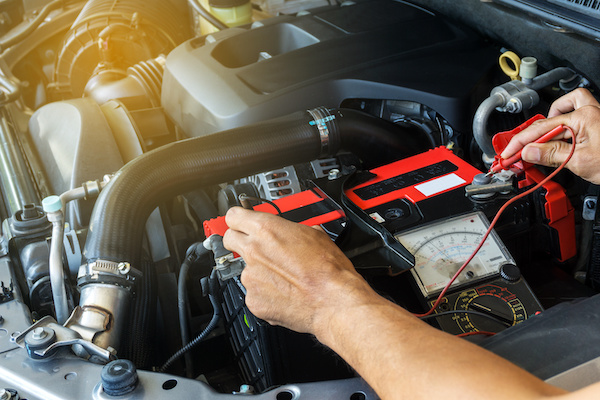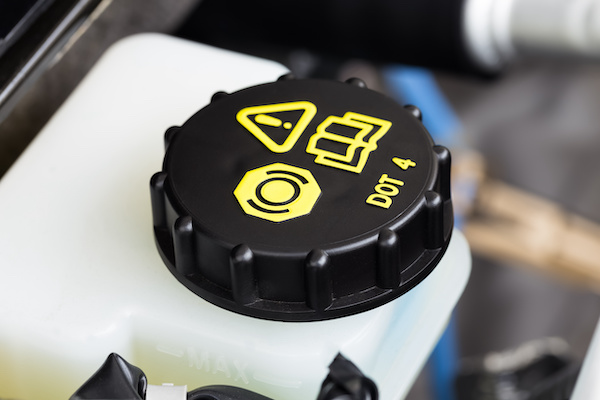Posted on 4/29/2022

While you might expect to see a bit of dust and debris when you open up the hood of your car, you certainly do not desire a bird's nest to be there when you take a look. Yet, that is exactly what happens to many car owners when they least expect it. Your engine is highly desired by birds when they are looking for a place to build a nest because it is warm and out of the way of inclement weather conditions. The question becomes what you should do when you find a nest under your hood. Continue reading to learn more. Preventing Birds From Building a Nest In Your Car It is important to keep birds from building a nest under your hood. It is not that you harbor any ill-will towards these flying animals, but it is important to understand the nest itself poses a fire hazard. The straw that comprises a nest can be quite dry. Combine that with the warm temperatures near the engine and you have a perfect recipe for disaster. Take a look at the following advice so you can k ... read more
Posted on 3/30/2022

You may have heard all-wheel drive and four-wheel drive thrown around at the dealership before. It refers to the system of how power or torque is distributed to your wheels. Some people use them interchangeably, but they do have their subtle differences. So what are the differences between AWD vs. 4WD? Read on to learn more. All-Wheel Drive All-wheel drive systems are vehicles with four wheels that gain traction independently from each other. The primary distinction between AWD and 4WD is that all-wheel drive is usually always on. There's no switching in between. This system is more commonly found in SUVs as opposed to trucks. All-wheel drive system comprises several differentials, or gearboxes, in various car sections. Since your tires can get traction on their own, it’ll give you optimal handling and traction with your car. Four-Wheel Drive Four-wheel drive systems send a fixed amount of torque to each wheel. You can toggle between having it on or off, unlike AWD. This ... read more
Posted on 2/28/2022

Every driver should understand the importance of their car batteries, and most will have to deal with a weak or dead battery at one point or another. If an automotive battery is failing, you can count on not going anywhere with your car. The good news is that batteries can be tested and recharged or replaced if necessary at Richman Automotive & Towing. Signs of a Faulty Car Battery It's not hard to tell when your vehicle's battery loses power. Some tell-tale signs of a battery that cannot hold a charge include dimming interior lights, headlights, tail lights, or starting trouble. Furthermore, most automobiles nowadays even have a designated dashboard warning light or a warning message that pops up whenever your car's computer detects an error. These are helpful because it will signal whether your battery issue is worth looking at and legit or not. To Recharge or Replace What are the next steps? Whenever you suspect your battery is bad, the first thing you shou ... read more
Posted on 1/31/2022

To put it in simple terms: Yes! Brake fluid can go bad. If you have a hydraulic braking system in your vehicle, the liquid is stored inside a sealed container. And in most cases, it should last you several years before needing a change or flush. However, moisture remains the biggest problem for brakes, and it can escape into the fluid lines and cause a leak. DOT fluid is prone to absorb water from the air. As a result, it will dilute the solution, lower its boiling point, and decline brake performance. Furthermore, the moisture in the fluid can also spread damage to other brake parts by corroding the calipers, cylinders, and so forth. How Long Does the Fluid Last? The effectiveness of your brake fluid depends on various things, such as the quality and type of fluid and the environment the car is driven in. For example, if you operate your vehicle in a more humid area, you will need brake fluid maintenance more often. Also, high-performing cars that run under hot tempera ... read more
Posted on 12/22/2021

Your car heater does not only make your commute more comfortable, but it also helps your car motor. Your combustion system is unlikely to run efficiently if your heating system is not operating since it is difficult to evaporate gas as temperature decreases. This is especially true for older vehicles that have carbureted engines. Even though you can technically drive newer vehicles unheated without experiencing immediate consequences, you will be putting more strain on your engine with time. If you are experiencing the following, it is time to service your car's heating system: A Musty Smell If you smell something humid in the cabin, your coolant may be leaking from somewhere. You should confirm by inspecting around your vehicle for a spill. Steam from the Engine Compartment A coolant leak may also be detected by seeing your vehicle smoking from under the hood. If you do not fix the problem by having your car properly serviced, your en ... read more